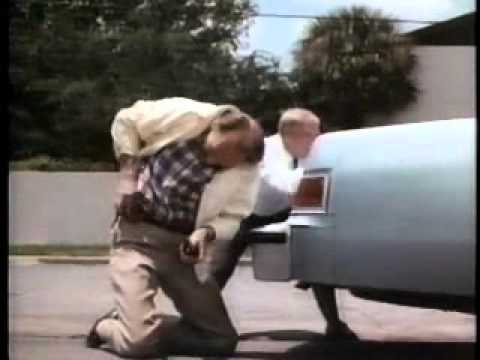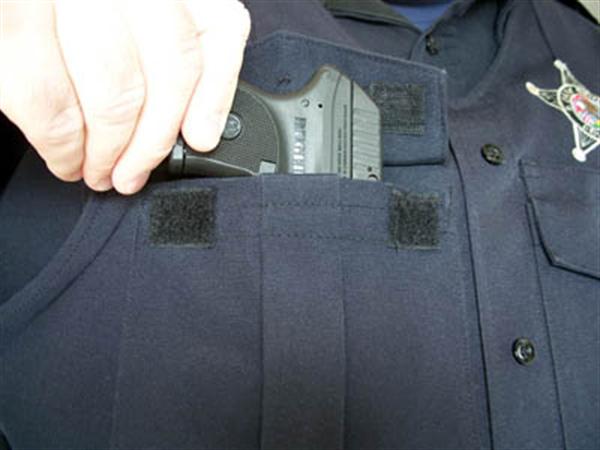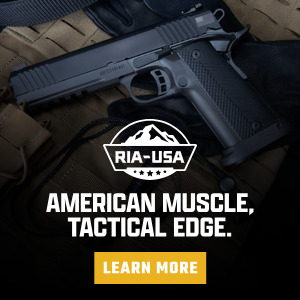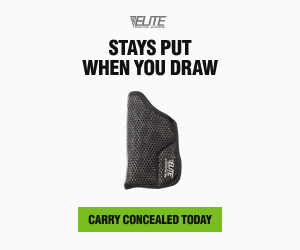Lessons learned in an infamous shootout say “yes” to carrying a back-up firearm. But why, which, and how? Here are thoughts from Jason Hanson. READ MORE
Jason Hanson
One of the most famous gunfights of the 20th century, occurred on April 11th, 1986 in Miami-Dade County, Florida. On this day, 14 FBI agents met in the morning at a local Home Depot to plan their search for a stolen vehicle that was believed to be driven by two suspects who had carried out multiple bank robberies.
Around 9:30 A.M., two agents spotted the suspect vehicle and began following it until more agents were able to join them. In total, eight FBI agents were on scene when the lead vehicle attempted to make a traffic stop, but instead, the suspect vehicle veered off the road hitting a tree.
Subsequently, the other agents surrounded the suspect vehicle in an attempt to arrest the two males behind the robberies.
The two suspects, identified as William Matix and Michael Platt, were armed with a shotgun, a Ruger Mini 14, as well as .357 revolvers. The FBI agents involved in the shootout were armed with shotguns, .357 revolvers, 9mm’s, and .38 Specials.
During the firefight, FBI agent Ed Mireles was severely wounded when his left arm was hit with a .223 round, rendering that arm useless. Mireles stayed in the fight and fired his 12-guage shotgun until it ran dry.
The two suspects were still moving and attempting to get away from Mireles after he emptied his shotgun so he drew his back-up weapon, a Smith & Wesson 686 revolver, and advanced on the suspects. Mirleles fired all six rounds from his revolver with five of the rounds striking the suspects, hitting each of them in the face, ending the five-minute gun battle.
Sadly, two FBI agents died in the firefight and all but one agent was wounded. Over 145 rounds were fired during the exchange and there’s no doubt that had it not been for the actions of agent Mireles more lives would have been lost.
The fact is, even though Mireles was injured he stayed in the gunfight and transitioned to his back-up weapon to ultimately end the threat. Now, most people probably expect law enforcement to carry back-up weapons, but have you ever considered carrying one as part of your EDC gear?
Here are some pros and cons for carrying a back-up firearm.
CONS
Uncomfortable.
If you are like me, you probably carry a gun, tactical pen, knife, flashlight, wallet, cell phone, and a keychain. My point is, your EDC gear can quickly add up so adding an extra firearm might be too much to comfortably carry for some folks.
I know a lot of people who like to carry their back up gun in an ankle holster. While this isn’t a bad idea, make sure you train and practice drawing from the ankle because if you do it wrong you could easily get hurt. Personally, when I carry a back-up gun (it depends on where I’m going) I carry it in my front pocket.
3 shots, 3 seconds, 3 yards.
Studies have shown that most gun fights involve an average of 3 shots being fired, lasting 3 seconds and occurring at a distance of about 3 yards. In other words, in a self-defense situation you hopefully won’t need multiple weapons to stop the threat.
Of course, as illustrated earlier, anything is possible. So, while you should be good to go by carrying a spare magazine only, you and I know that life is very unpredictable.
Practice.
When it comes to carrying a back-up gun, you need to spend as much time practicing with this gun as you do with your main weapon.
I know a lot of guys that carry a back-up on their ankle and they often train to draw the weapon while falling backwards on their butt, while engaging the threat. Be prepared to train with your back-up weapon and consider choosing a back-up that is similar to your regular carry so you are familiar with it.
PROS
Options. One of the biggest advantages to carrying a back-up weapon is that these days there are so many different back-up guns to choose from including the Ruger LCP and Sig Sauer P238. So, almost anyone can find a back-up gun that works for them.
Arm a family member.
Let’s say you are out to dinner with your spouse when you spot an active shooter. Well, if your spouse or other family member is trained in the use of firearms (and doesn’t often carry) you could simply give them your back-up gun to help you confront the shooter.
The bottom line is, it can never hurt to have extra firepower on you. This is especially true if you’re heading into place that it might come in handy such as dangerous areas of town or through a city that’s experiencing violent protests at the moment.
Jason Hanson is a former CIA Officer and New York Times bestselling author of Spy Secrets That Can Save Your Life. To get a free copy of his book, click HERE.










